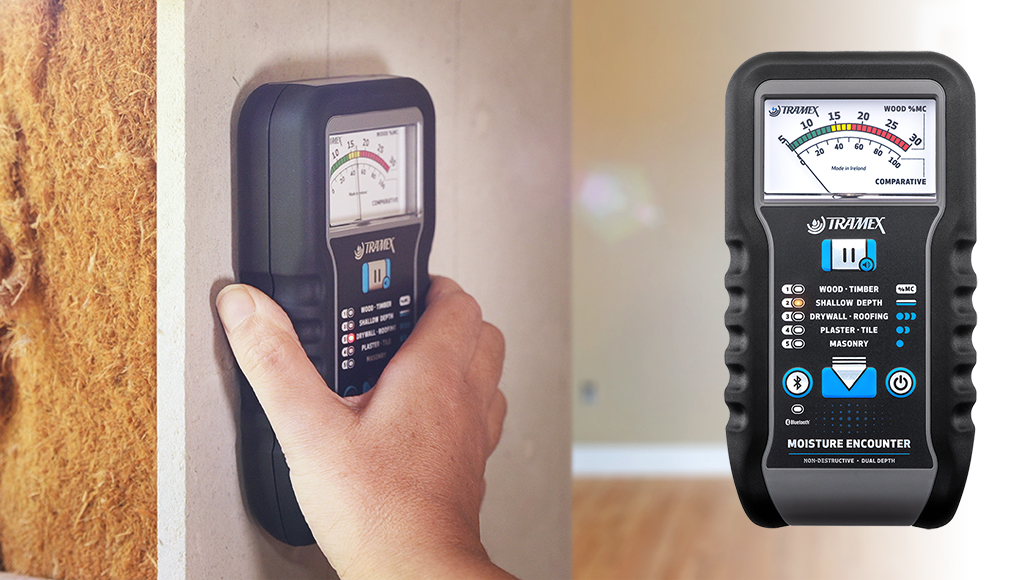The Science Behind Moisture Meters: Exactly How They Function and Why They're Essential
Wiki Article
The Ultimate Overview to Moisture Meters: A Comprehensive Review and Exactly How They Can Save You Cash
Moisture meters serve as vital devices in discovering and monitoring moisture material in products, assisting in avoiding expensive problems and ensuring the quality of products. Comprehending the subtleties of various types of moisture meters, their applications, and the prospective cost-saving advantages they supply can be a game-changer for specialists and organizations alike.Types of Wetness Meters
Different kinds of dampness meters are readily available for various applications in various markets. One typical kind is the pin-type dampness meter, which gauges the electrical resistance between two pins inserted into a material. This type appropriates for timber, drywall, and various other structure materials. Pinless moisture meters, on the other hand, use electro-magnetic sensing unit plates to scan a bigger location without causing damage to the product's surface area. Moisture Meter. These meters are ideal for rapidly examining wetness degrees in huge areas such as wall surfaces and floorings.
Moreover, there are additionally specialty wetness meters created for details materials like soil, hay, or grain. These meters supply precise wetness analyses tailored to the one-of-a-kind homes of the product being evaluated. Infrared moisture meters determine the thermal buildings of a product to identify its dampness web content non-invasively, making them useful for applications where pin or pinless meters might not be ideal. Understanding the different sorts of moisture meters readily available can assist industries choose the most appropriate device for their particular moisture measurement requirements.

Advantages of Making Use Of Moisture Meters
Wetness meters use important advantages in properly examining and checking wetness degrees in varied materials and atmospheres. One of the key advantages of utilizing moisture meters is the prevention of possible damages triggered by excess moisture.
Furthermore, making use of wetness meters can result in increased energy efficiency. By determining areas with high wetness levels, such as leaks or bad insulation, adjustments can be made to improve energy conservation and minimize utility prices. In farming settings, dampness meters play a critical function in optimizing plant yields by enabling farmers to check soil dampness levels and make educated irrigation choices. In general, the advantages of using dampness meters span throughout various markets, providing economical solutions and advertising better quality assurance techniques.
Just How to Pick the Right Moisture Meter
When choosing a dampness meter, it's important to make sure that the meter is suitable for the specific product you will certainly be screening. Different products have varying electric residential properties that can affect dampness readings, so picking a meter created for your material is critical for precise outcomes. By thoroughly assessing these variables, you can select a moisture meter that satisfies your demands and offers exact moisture measurements for your tasks.Proper Strategies for Wetness Meter Use

Price Financial Savings Via Dampness Meter Applications
Just how can the calculated use of dampness meters bring about significant cost financial savings across numerous industries? Dampness meters play a critical function in price financial savings by avoiding possible damage and making sure quality assurance in different markets. In the farming sector, dampness meters help in figuring out the ideal time for collecting plants, stopping excess or over-drying dampness that can affect the last product's quality. This exact tracking aids farmers stay clear of unneeded losses and maximize their yield.
In a similar way, in building and construction, moisture meters assist avoid expensive problems by spotting dampness degrees in structure materials, such as timber or concrete, which can bring about structural issues otherwise dealt with quickly. By determining trouble locations beforehand, specialists can take rehabilitative procedures to stay clear of substantial fixings or substitutes, ultimately conserving time and cash.
Furthermore, in the food handling industry, wetness meters are essential for monitoring item high quality and making certain compliance with safety regulations. By find this properly determining wetness material in food items, makers can avoid spoilage, maintain quality, and reduce waste, resulting in significant cost financial savings. In general, the calculated application of wetness meters is a beneficial financial investment that can result in considerable cost reductions and improved performance throughout various industries.
Conclusion
To conclude, wetness meters are important tools for detecting and determining wetness levels in various materials. By making use of the best wetness meter and complying with appropriate techniques, customers can effectively prevent costly problems triggered by excess dampness. Purchasing a high quality moisture meter can result in significant expense financial savings over time by determining potential problems early and enabling prompt removal. Inevitably, moisture meters are important tools for preserving the honesty and durability of products and structures.Dampness meters serve as important tools in detecting and keeping track of moisture content in products, assisting in avoiding costly problems and guaranteeing the top quality of products. Infrared dampness meters measure the thermal residential properties of a material to identify navigate to this website its dampness web content non-invasively, making them helpful for applications where pin or pinless meters may not be ideal.Dampness meters offer vital benefits in properly monitoring and analyzing dampness degrees in diverse materials and atmospheres. In agricultural settings, dampness meters play an important role in enhancing crop returns by allowing farmers to keep an eye on dirt moisture levels and make informed irrigation decisions.In final thought, wetness meters are important tools for measuring and identifying wetness degrees in different products.
Report this wiki page